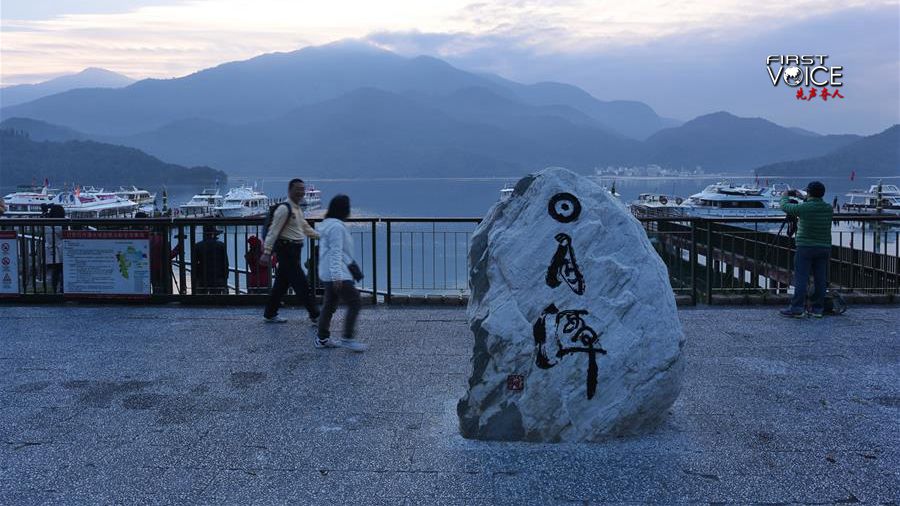
Lakeside of Riyue Tan, or the Sun Moon Lake, in Nantou County, southeast China's Taiwan. [Photo/Xinhua]
By Bradley Blankenship
Editor's note: CGTN's First Voice provides instant commentary on breaking stories. The column clarifies emerging issues and better defines the news agenda, offering a Chinese perspective on the latest global events.
Taiwan regional leader Lai Ching-te is on his trip through the Pacific, including a "stopover" in the U.S. territory of Hawaii over the weekend. It is no secret that these trips have been a staple of Taiwan authorities, but Lai's decision to transit through U.S. soil has already raised the stakes in a game with dire consequences.
Lai touted "peace" during his stay at the USS Arizona Memorial in Pearl Harbor. Lai also held a 20-minute phone talk with former U.S. House of Representatives Speaker Nancy Pelosi on Sunday. While Lai proclaimed "peace," his "stopover" on U.S. soil is a reckless and provocative maneuver that undermines cross-strait security and destabilizes regional peace.
The Chinese central government has been unequivocal in its stance on Taiwan's secessionist actions: any attempt to push for Taiwan's 'independence' will be met with strong opposition. This position is not a matter of political preference – it is a historical imperative.
Lai, however, has chosen to ignore the inevitable consequences of his actions, not only disregarding the mainland's warnings but seemingly egging on its ire.
The decision to "transit" through the United States is no coincidence. While the U.S. remains Taiwan's most crucial "supporter," these types of provocations only serve to embolden separatist factions and provoke military responses from the mainland.
Lai is well aware of the sensitivities surrounding his trip and knows the immense risk it poses to cross-strait relations, yet he presses ahead, seemingly oblivious to the impending consequences.
Lai's reckless pursuit of secessionism emboldened by American backing, could lead Taiwan into a dangerous spiral. By indulging in this flirtation with sovereignty without realistic consideration of the risks, Lai is playing with fire.
In fact, Lai's government has already triggered the mainland's ire through its recent provocations. The Joint Sword 2024 drills are not arbitrary. They are calculated moves by the mainland to assert its dominance and signal to Washington that it will not tolerate the U.S.'s continued interference in its internal issues. Taiwan's reckless pursuit of its secessionism risks not only its own security but also that of the entire region.
Taiwan's dwindling number of "diplomatic allies" is unlikely to offer any meaningful political or military support in the event of a crisis.
Lai's insistence on using the U.S. as a political prop in this high-stakes game only exacerbates Taiwan's tenuous position. It is the height of political naivety to believe that U.S. support will shield Taiwan from the realities of the mainland's military might.
Taiwan authority under Lai, pushing for its secessionist goal, continues to disregard the fact that Taiwan's future is inextricably linked to the mainland's will. Provoking the mainland with self-righteous declarations of "sovereignty" is not courage – it is folly.
Lai's trip comes at a time when global attention is focused on the shifting balance of power in the Asia-Pacific region. As Washington grapples with its internal turmoil, it would be a grave mistake to continue allowing Taiwan's leadership to dictate policy with such reckless abandon.
Taiwan's best interests are not served by continuing down this path of provocation. Lai's insistence on making a public spectacle of his secessionist ambitions will ultimately lead to disaster, dragging the island into a confrontation with the mainland it is ill-equipped to win.
The author Bradley Blankenship is a Prague-based American journalist, political analyst, and freelance reporter.

 中文
中文



